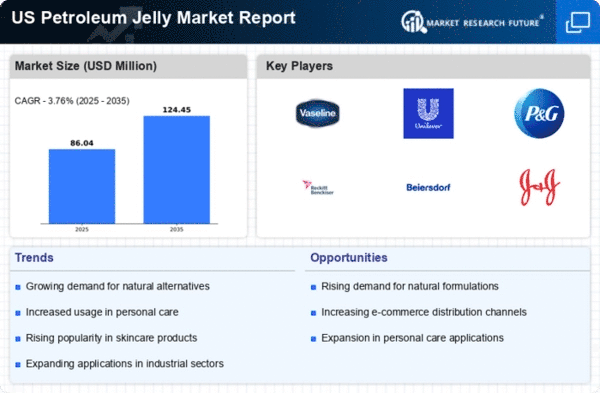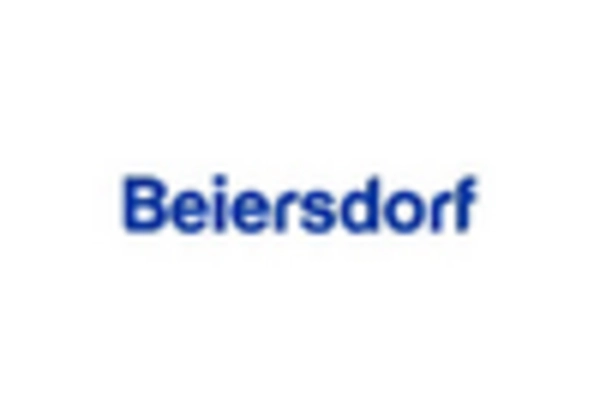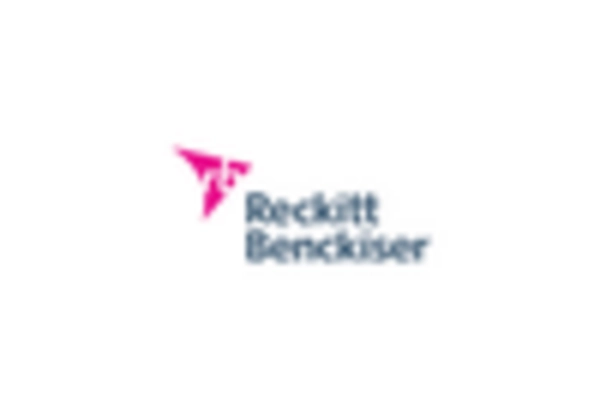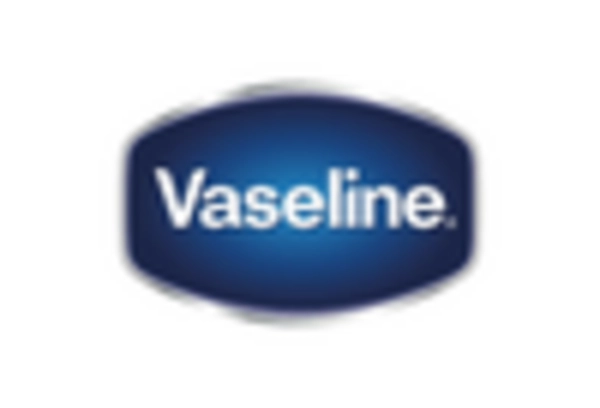The petroleum jelly market exhibits a competitive landscape characterized by a blend of established brands and emerging players, driven by factors such as increasing consumer awareness regarding skin care and the versatility of petroleum jelly in various applications. Major companies like Vaseline (GB), Unilever (GB), and Procter & Gamble (US) are at the forefront, leveraging their extensive distribution networks and brand equity to capture market share. These companies focus on innovation and sustainability, with product formulations that cater to evolving consumer preferences, thereby shaping a dynamic competitive environment.Key business tactics employed within this market include localizing manufacturing to reduce costs and enhance supply chain efficiency. The competitive structure appears moderately fragmented, with a mix of large multinational corporations and smaller niche players. This fragmentation allows for diverse product offerings, yet the influence of key players remains substantial, as they set trends and standards that smaller companies often follow.
In October Procter & Gamble (US) announced a new initiative aimed at enhancing the sustainability of its petroleum jelly products by incorporating bio-based materials into its formulations. This strategic move not only aligns with the growing consumer demand for eco-friendly products but also positions the company as a leader in sustainable practices within the industry. The initiative is likely to resonate well with environmentally conscious consumers, potentially increasing market share.
In September Unilever (GB) launched a marketing campaign emphasizing the multifunctional uses of its petroleum jelly products, targeting both traditional and digital platforms. This campaign aims to educate consumers on the diverse applications of petroleum jelly, from skincare to household uses. By enhancing brand visibility and consumer engagement, Unilever seeks to solidify its market position and drive sales growth in a competitive landscape.
In August Johnson & Johnson (US) expanded its product line by introducing a new variant of petroleum jelly infused with natural ingredients. This product aims to cater to the rising trend of natural and organic personal care products. The introduction of this variant reflects the company's commitment to innovation and responsiveness to consumer trends, potentially attracting a new customer base seeking healthier alternatives.
As of November current competitive trends in the petroleum jelly market are increasingly defined by digitalization, sustainability, and the integration of artificial intelligence in product development and marketing strategies. Strategic alliances among companies are becoming more prevalent, facilitating knowledge sharing and resource optimization. Looking ahead, competitive differentiation is likely to evolve from traditional price-based competition to a focus on innovation, technological advancements, and supply chain reliability, as companies strive to meet the demands of a more discerning consumer base.

















